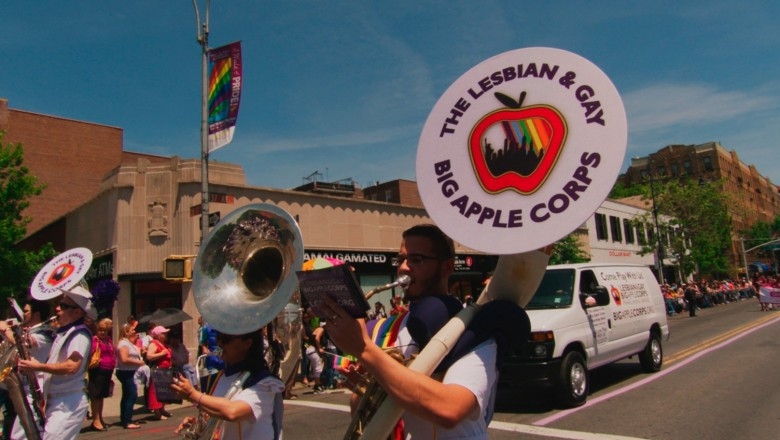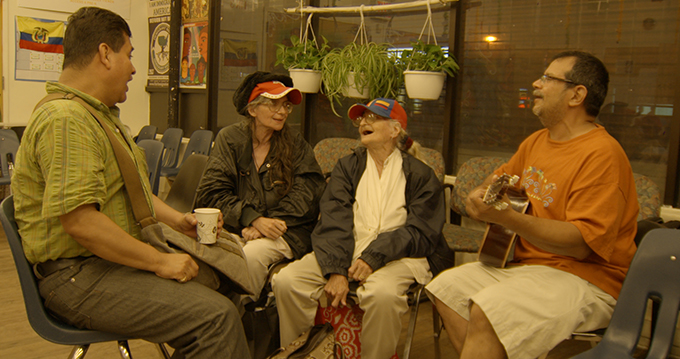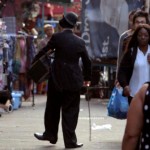By David  Pountain
Directed by Frederick Wiseman
London Film Festival review
Maybe it’s because he’s been cranking out features since the late ‘60s but there is quite possibly no documentarian working today with more confidence in their craft and more faith in the self-evident profundity of their subjects than Frederick Wiseman. His films are devoid of talking heads, voiceover narration, prodding background music, showy editing and fiercely insistent messages. He never feels the need to make himself the star of his own documentaries, content to let the inhabitants of whatever institution he’s filming go about their lives while his cameras lie silent and unobtrusive. In other words (and this isn’t meant as a knock at either party) he’s the exact opposite of relative American new-schoolers from Michael Moore to Andrew Jarecki.
This contrast is emphasised by Wiseman’s new feature, In Jackson Heights, a film that feels acutely observant of our current times – not because the director says so, but simply because our current times are what happen to be unfolding right in front of Wiseman’s cameras. Depicting the lives and organised struggles for change in one exceptionally multicultural neighbourhood in New York, In Jackson Heights is consistently in the moment, allowing the grandest of revelations on the nature of communities to take shape organically in real time before our eyes.
It’s a stylistic necessity that Wiseman’s films, especially these days, have fairly epic running times. Essentially montages with the depth allowed by a more patient pace, the numerous often lengthy scenes in Wiseman’s picture play off each other, each offering a new outlook or angle of analysis. He finds a certain harmony in his collages as the various perspectives from numerous corners of his broad subject create a gradually spellbinding, cumulative effect.

The 190-minute In Jackson Heights consists largely of an assortment of meetings and social gatherings, from the local businesses bracing themselves for an onslaught of gentrification to the transgender community discussing the discrimination they have experienced. The overlapping web of social issues takes vivid form in scenes like that of a black transgender woman explaining how she feels safer walking down the street in clothes that identify her as female, since black men are more likely to arouse undue suspicion from the police. Jackson Heights – and, by extension, the world as a whole – is presented as an array of people and groups jostling for a place in society while contributing to the wider community in their own way.
Those who’ve never seen a Wiseman film before might need a little time to adjust to the pacing of In Jackson Heights, a film that quietly buzzes with activity progressing at the speed of life. Creating narrative cohesion through his editing (the footage is ordered to look like it’s all taking place over the course of a few days), Wiseman uses his invitingly vivid present tense as a platform to contemplate our relations with the past and the future. The film is aware of the progress that its various groups have made and optimistic that further advancements will come about through organisation and cooperation. While In Jackson Heights isn’t building up to any single scene quite as sublime and summative as the finale of Wiseman’s National Gallery (perhaps the finest documentary released in the UK this year), it creates an expansive, nuanced and complex landscape painting of a community that is simultaneously interconnected and made of distinct, self-determined parts, amounting to a rich, forward-thinking environment whose identity stems from its diversity.









